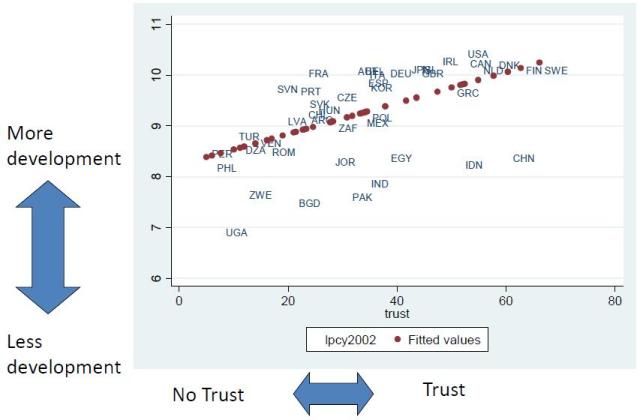Saving Private Hayek
UPDATE: 3:30pm links to other reviews (all great) of the Fukuyama review at end of this post F.A. Hayek continues to be the most mis-characterized economist of all time. As if Glenn Beck were not doing enough damage, now even someone I greatly respect -- Frank Fukuyama-- has gotten Hayek wrong yet again. In a review of a new edition of the Constitution of Liberty in the NYT book review, Fukuyama says at the end:
In the end, there is a deep contradiction in Hayek’s thought. His great insight is that individual human beings muddle along, making progress by planning, experimenting, trying, failing and trying again. They never have as much clarity about the future as they think they do. But Hayek somehow knows with great certainty that when governments, as opposed to individuals, engage in a similar process of innovation and discovery, they will fail. He insists that the dividing line between state and society must be drawn according to a strict abstract principle rather than through empirical adaptation. In so doing, he proves himself to be far more of a hubristic Cartesian than a true Hayekian.
To say Hayek's skepticism about government was based on "great certainty" is not just wrong, it is so much the opposite of Hayek, it's like accusing Michele Bachmann of excessive belief in the Koran.
Hayek's view of knowledge was that it was partial and dispersed among many. The market gave individuals the incentives to apply this knowledge, and coordinated the uses of this local knowledge in a way that rewards each of us who knows best about any particular narrow area. (Frank notes this insight in an earlier paragraph, which makes the paragraph above even more puzzling.) Government usually lacks both the incentives and the coordination mechanism. In government we don't know who knows best, so which knowledge wins the argument could often be wrong.
This does NOT imply the caricature that Hayek always opposed government action. As Fukuyama notes:
It may, however, surprise some of Hayek’s new followers to learn that “The Constitution of Liberty” argues that the government may need to provide health insurance and even make it compulsory.
A government based on individual liberty will have some feedback and reward mechanisms that would produce better government outcomes in such areas than under tyrannical outcomes, and will make possible some kinds of government innovation and discovery that Fukuyama likes. But the political feedback mechanisms even under liberty (like majority voting, protesting, freedom of speech, or lobbying) are much cruder and less likely to align individual and social payoffs than the market feedback mechanisms, so one should be cautious about the scope of activities in which government programs will be effective. One should be particularly wary of large-scale government plans that require a type of centralized knowledge that Hayek argued forcefully does not exist (down with Robert Moses, up with Jane Jacobs!)
To sum up, Hayek's skepticism about government was NOT based on his certainty, as Fukuyama would have it, but on his awareness of his ignorance. (and everyone else's)
Us public intellectuals who are communicating ideas of Hayek to a broader public are NOT fond of ideas that highlight our own ignorance, so one prediction that can be made with a higher degree of certainty than usual is that Hayek will continue to be misunderstood.
UPDATE 3:30pm 5/9/11: Links to other reactions to Fukuyama: Pete Boettke, Don Boudreaux, David Boaz, Don Boudreaux again with more, and, intriguingly, Hayek himself. (HT to Knowledge Problem for bringing them all together.)
 From Aid to Equality
From Aid to Equality









